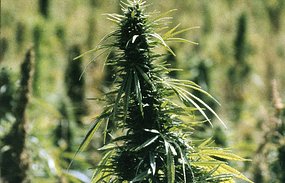lil angel15
Bluelight Crew
- Joined
- Jul 16, 2005
- Messages
- 7,828
Cannabis increases psychosis risk - study
By Michael Kahn in London
July 27, 2007 09:54am
USING marijuana increases the risk of one day developing a psychotic illness such as schizophrenia, according to a study that provides some of the strongest evidence yet linking the drug to a mental disorder.
Marijuana is one the most commonly used illegal substances in many countries with up to 20 percent of young people in places like Britain reporting either some use or heavy use, British researchers said, citing government statistics.
Many consider it on par with alcohol or tobacco but the results shows marijuana poses a danger many smokers underestimate, said Stanley Zammit, a psychiatrist at Cardiff University and the University of Bristol, who worked on the study.
The researchers found that marijuana users had a 41 percent increased chance of developing psychosis marked by symptoms of hallucinations or delusions later in life than those who never used the drug. The risk rose with heavier consumption.
"If you compare other substances like alcohol or tobacco it may not be as harmful, but what we are saying is neither is it completely safe," Dr Zammit said in an interview.
Other findings have highlighted the link between marijuana use and the risk of schizophrenia-like symptoms such as paranoia, hearing voices and seeing things that are not there.
But this study marks one of the most comprehensive, thorough and reliable reviews of its kind and should serve as a warning, two Danish researchers wrote in an accompanying comment in the Lancet medical journal, which published the study today.
They said the results mean an estimated 800 cases of schizophrenia in the United Kingdom could be prevented each year by ending marijuana consumption.
"We therefore agree with the authors' conclusion that there is now sufficient evidence to warn young people that cannabis use will increase their risk of psychosis later in life," they wrote.
The team did not look directly at people who used marijuana but instead conducted what is called a meta-analysis by reviewing 35 studies in search of a potential connection between psychotic illness and using marijuana.
They reviewed evidence from studies ranging from one year to 27 years and looked only at research that did not include people already showing signs of psychotic illness.
The researchers also adjusted for factors - like depression or a susceptibility to harder drugs - that could one day lead to a mental disorder to focus more directly on the links between marijuana and psychosis, Dr Zammit said.
"We have described a consistent association between cannabis use and psychotic symptoms, including disabling psychotic disorders," the team wrote.
But both Dr Zammit and the Danish researchers said ultimate proof to show a direct relationship would be have to come through a randomised trial of healthy young people and long-term follow-up.
Such a study, however, was unlikely given marijuana is illegal in most countries and the ethical questions given the drug's known harmful effects, they said.
News.com.au

